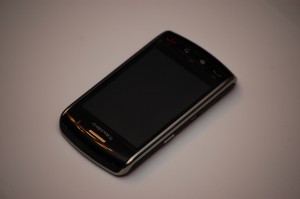 The Fourth Amendment of the U.S. Constitution protects every person from being free from unreasonable searches and seizures by law enforcement. This means the police must have either a warrant, or some other legitimate reason to be able to search anything in which a person has a “reasonable expectation of privacy”.
The Fourth Amendment of the U.S. Constitution protects every person from being free from unreasonable searches and seizures by law enforcement. This means the police must have either a warrant, or some other legitimate reason to be able to search anything in which a person has a “reasonable expectation of privacy”.
One of the reasons often used by police to search a person is when the search is “incident to an arrest” – meaning, if you are lawfully arrested, police may search your clothes and any purse, backpack, etc. with you at the time of your arrest. The point of the search is to determine if you have a weapon or other contraband with you before they take you into custody. Obviously, this sort of search is necessary, and makes sense as an exception from the requirements of the Fourth Amendment. It is not unreasonable for your pockets or backpack to be searched for weapons if you have been legally arrested.
However, in the recent decision in People v. Diaz, the California Supreme Court took this exception to the warrant requirement a step further. In Diaz, the defendant was arrested for his involvement in a drug deal. After being arrested and questioned for approximately 90 minutes, a detective looked through Diaz’s cell phone and found text messages regarding a drug transaction. Diaz challenged this search of his cell phone as a violation of his Fourth Amendment right – obviously he would not be allowed to possess the cell phone in jail, and so it could not contain a weapon or other contraband. Further, if the police wished to search the phone, they could easily have obtained a warrant without any threat of evidence on the phone being deleted, as the phone was no longer in Diaz’s possession.
But the California Supreme Court instead took a dangerous step towards eroding our Constitutional rights by declaring the search legal as “incident to the arrest”. This case appears to open up a host of other privacy issues – can the police now search a person’s iPad in a backpack? What about a laptop in a suitcase? What if the device is password protected? What if the arrest is for something (like a DUI) completely unrelated to potential evidence that could be found on a phone? What if an officer justifies looking through texts or email on the basis of a sham excuse of looking for evidence of the crime, like texts about which bar to meet up with friends?
Very likely, this case will be appealed to the U.S. Supreme Court. Hopefully, the legitimacy of this sort of invasion of privacy will be struck down. Until then, however, it’s a good idea to password protect your phone, iPad, or laptop. If police ask for your password, remember your Fifth Amendment right to remain silent. Always protect yourself!
If you have any questions regarding this or any other criminal law issue, contact criminal defense attorney Scott R. Ball today. Consultations are completely confidential and always free.



 © Copyright 2010-2024 |
© Copyright 2010-2024 |
{ 0 comments… add one now }